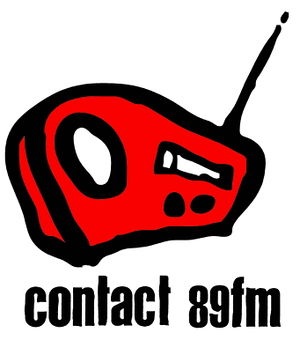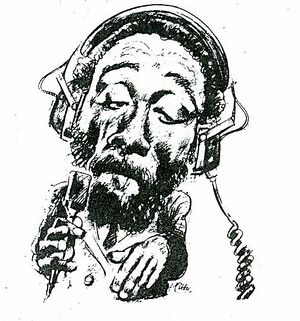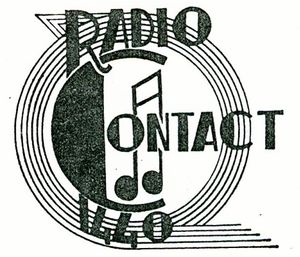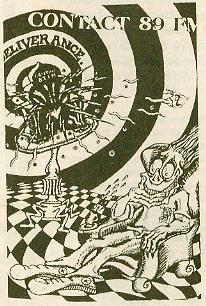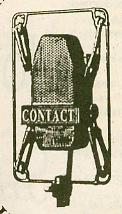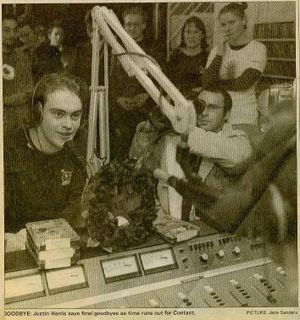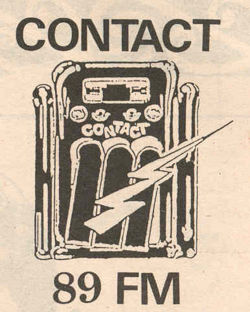Difference between revisions of "Contact FM"
| Line 92: | Line 92: | ||
== '''Contact 88.1 Staff''' == | == '''Contact 88.1 Staff''' == | ||
| − | Since the resurrection of Contact 88.1 the station has not had individual station managers, but has been run by a collective called the [[Independent Broadcasting Community Hamilton]]. Since its formation, this group has included Roz Case, Kat Cox, [[Petra Jane]], [[Andrew Dean]], [[Shane Dudfield]], [[Gian Perrone]], Arianne Zilberberg, [[Dan Howard]], Paula Moneypenny | + | Since the resurrection of Contact 88.1 the station has not had individual station managers, but has been run by a collective called the [[Independent Broadcasting Community Hamilton]]. Since its formation, this group has included Roz Case, Kat Cox, [[Petra Jane]], [[Andrew Dean]], [[Shane Dudfield]], [[Gian Perrone]], Arianne Zilberberg, [[Dan Howard]], Paula Moneypenny, Rachel Sutton, Lauren Kbell, [[Nick Johnston]] and [[Matthew Bannister]]. |
== '''Published Articles''' == | == '''Published Articles''' == | ||
Revision as of 17:01, 6 August 2010
Contact FM is a radio station which broadcasts from the University of Waikato. In it's original form, it ran from 1976 to June 1998. It was resurrected in 2003 and it's current frequency is 88.1FM.
Contents
History
Contact had its beginnings in 1974 as "The Campus Communications Club", formed by David Kinzett, Duncan Stuart and Ken Kilpin, with the aim of starting a radio station. For the first two years their only capability was to "broadcast" during Orientation week to the University of Waikato's student cafe's, in-house only (i.e., to Oranga, downstairs Oranga, the Teachers College cafeteria and the quad area in front of the Cowshed). In 1977 the station went "on-air" for the first time using an ex-Canadian Airforce AM transmitter, bought for $250 from Valentines (later known as Doyles Army surplus). From this time it went under the moniker "Radio Nyllewell", named after the Nyllewell Republic (an area of the University comprising Oranga and the Cowshed), which in turn was named after the universities vice-Chancellor, Don Llewellyn (Nyllewell is his surname spelt backwards). However, Radio Nyllewell could still broadcast only during O-weeks, and initially the Broadcasting Tribunal (enforced by the post office) would not allow the station to broadcast any advertisements. The station did 'pipe' music into the campus cafeterias while not "on air". At this time broadcasts were on the on 1450 kHz band (moving to 1440 kHz from 1978). In 1977 the studio was located in the top floor of K block, in K3.09, at the University. From 1978 the station broadcast from downstairs Oranga, changed its name to "Radio Contact", and in 1981 moved to the Cowshed. It was called 'Contact' as a name starting with "C" was needed to fit in with the last letter of the callsign "ZL1XC". It was not until 1983 that Radio Contact began broadcasting longer hours, and throughout the year. However, this had the effect of the station having to play advertising from 1984, although it was ensured that advertisers had no say on the music playlisted. In 1985 Max Christoffersen became the stations manager, and in 1986 the station's first official "paid" full time manager. It was under his reign that the station became "Contact 89FM", only the second radio station in Hamilton to switch to the FM band. Its first FM broadcast was in late February 1986.The station celebrated its 21st birthday in 1997, where MSU and Love's Ugly Children played sets consisting mainly of covers.
Music and Shows
By the late 1980s, Contact had an eclectic mix of music on playlist, including a lot of NZ music (about 30% at a time when commercial radio was averaging about 2%), dance music (back when it was called techno), hip-hop, dub, hardcore and more. The staple of Contact's playlist (particularly from the early 1990s) was indie guitar pop and rock. Contact played "alternative music" in the truest sense; that is, it was music that was an alternative to what the commercial radio stations were playing. Another point of difference was that the playlist was only 50% programmed. Unlike other stations, announcers were able to spend the other 50% playing listeners requests and those of the announcers own choice - this provided each show with a distinctive sound. Further, the announcers, all volunteers, were encouraged to express their own personalities, not act as clones like on most other radio stations at the time. Breakfast and drive shows were hosted by more experienced announcers and were also playlisted (with free choice) but had giveaways, more on-air features than daytime shows and the odd interview. Specialist shows played in the evenings and all day on Sunday.
One of Contact's strengths was a wide range of specialist shows playing music that was not included in the Contact playlist (and certainly not on any other Hamilton station) but nevertheless had an audience in Hamilton. One of the most important shows in this respect was "Urban Jangle", a show that featured Hamilton music exclusively, run for several years by Adam Hyde. Other shows included the New Zealand music show (known as Agitpop and Noisyland at various times, which also featured a high ratio of Hamilton music content), the Top 13, Hiphop, Dub/Reggae, Industrial, Punk and Hardcore, Jazz, Classical, Comedy and World music. Other specialty shows focussed on the arts, GLBT issues, foreign language and cultures, comedy and children's content to name but a few. Towards the end of Contact's existence, the majority of these shows were axed in an effort to make the station more commercially viable. By the time Contact changed to UFM, only a handful of the specialty shows remained. Click here for more on shows
Ownership
Contact operated as part of the WSU until 1996. The WSU executive decided in 1995 to separate Contact, Nexus and Static TV into separate legal entities, a decision prompted in part by Nexus being sued for defamation earlier that year. The intention in 1995 was still for the WSU to fund Contact (with additional revenue from subcards and advertising).
Contact 89FM Limited was incorporated in October 1995. The station did not trade through the company immediately, but this happened in mid to late 1996. The company immediately experienced financial difficulties because the WSU executive delayed transferring the assets to the company. This meant that there was no security to obtain a loan or overdraft to operate the station.
The WSU indicated that Contact would need to generate more of its own funding, but that there would be interim arrangements to help transition from being (more or less) fully funded by the WSU. The 1996 executive told the then station manager, Heidi Erceg, that it would make available a contingency grant of $20,000 to help with the transition from being fully funded by the WSU to being self-funding. When the 1997 executive came to power, however, it reneged on this promise at the first exec meeting of the year. Despite her best efforts Heidi was unable to balance the books without the money and the station was heading for insolvency. At a WSU executive meeting in February 1997, the directors and Heidi told the executive that the contingency grant needed to be made available immediately, and that if they did not decide to make the funds available at the meeting the station would be closed immediately.
At that time, the 1997 executive consisted entirely of members of "Student Choice", a group with a classical libertarian philosophy and which espoused the universal applicability of free-market principles: specifically, they argued that student union membership should not be compulsory and that WSU holdings should be run as profit-making companies - as opposed to being run as communally funded student services. Dan Baker and Kevin Glover joined the exec following a Special General Meeting in March 1997, replacing Student Choice members Madeleine Richard and Matthew Flanagan who had resigned following controversy about them attending an anti-abortion meeting. Dan and Kevin were in favour of compulsory membership of the WSU and the retention of student services, including Contact. For ideological reasons, the executive was extremely reluctant to give the grant (especially Bryan Sinclair, the vice president - now "special adviser" to Don Brash). Eventually the WSU decided to loan half of the promised amount to the station on commercial terms.
This meant that Contact could continue to broadcast. It did, however, kneecap the station financially. The company had a $10,000 loan on its balance sheet, lacked the funds upon which it had depended to make ends meet and had no assets to use as security for a bank loan or overdraft. Heidi also resigned as station manager shortly afterwards for the sake of her own sanity. The station was without a manager for several months.
One of Lois Livingstone's first tasks as Station Manager in April 1997 was to recruit a team of sales reps, a job which had previously been done by one person (with assistance from the Station Manager). The reps worked on a commission only basis initially. There were over 10 reps at the beginning, but this gradually reduced to a core of Tom Dalton, Greg Lane and Martin Walters.
Sale and Closure
On 1 January 1998, membership of the WSU became voluntary. Shortly after that, the WSU indicated that it wished to sell Contact 89FM Limited. Contact staff (led by Scott Newth) considered mounting a bid to purchase the station.
Lois was forced to resign as station manager around this time following comments she had made about the WSU as a result of the relationship between the station and the WSU deteriorating.
Bryan Sinclair remained a director of Contact 89FM Limited after he had finished his term as vice-president of the WSU at the end of 1997. This meant that he essentially took one of the three professional director slots (despite his sole business experience being as ex officio director of WSU companies the previous year).
Auckland’s 95bFM expressed interest in purchasing the station, and having the current Contact staff continue to run things. In the event the WSU received a bid from Max Christoffersen (who was a station manager many years earlier and was then a director of Contact 89FM Limited), and one from Joe Dennehy. The WSU advised in March that it would not sell the station, but then announced in April that it had in fact sold the station to Joe Dennehy. Contact 89FM ceased broadcasting on 17 June 1998.
Closedown
Kevin Glover and Dean Ballinger hosted the station’s final breakfast show. It was a sombre morning, with Flying Nun sending a wreath to mark the passing of Contact.
Justin Harris and Scott Newth hosted the final drive show from 4 to 7pm. This included a final top 13 of listeners’ favourite tracks played on Contact over the 22 years of its history. Many announcers joined Justin and Scott in the studio for the final show, and the event was reported by the Waikato Times and filmed by Rohan Marx. Closedown occured at 7.06pm, with a Contact liner, "Contact will always be your friend" sung by Gordon Bassett, the last words to be heard. That night there was a Contact wake, a gig held at Xtatic. The atmosphere was filled with a mixture of sadness and anger, the latter particularly induced by one staff member using the event to promote the new station, UFM. Playing the event were Inchworm, Hollow Grinders, Southern Tribe and Rumpus Room. Soon afterwards, UFM began life on the same frequency.
Resurrection
After years of (sometimes half-hearted) attempts by the WSU to get Contact back up and running (whether by taking back the frequency or starting a new station from scratch), success finally came in 2003. The WSU exec that year had been monitoring The Generator's broadcasts, and found several breaches of not only the rules that B-Net stations had to adhere to, but also the contract that was initially signed in 1998. A vote was taken, and the Exec decided to give the station 30 days in which to comply, or the 1998 contract would be considered void (as per the details of the original contract). The 30 days came and went, The Generator didn't change a thing, but the WSU Exec decided not to follow through with the threat on advice from their lawyers.
Instead, a proposal put forward from Dan Howard (of Click Sound) to set up an incorporated society and broadcast on an open, non-commercial frequency was considered. With his assistance and technical knowhow, by late 2003 a student radio station under the name 'Contact' began broadcasting from the university campus again. The frequency used initally was 106FM, but was shifted to 88.1FM in 2005.
In late 2005, the new Contact received information from a Generator insider that the Generator was intending to sell the CDs and vinyl which had initially been part of the massive Contact 89FM catalogue. When Contact was sold to Joe Dennehy, the catalogue was not part of the asset transfer, but as Dennehy had absorbed more of Contact's debt than was initially agreed to, and the station premises remained in the same place, the catalogue became attached to UFM. While Contact 88.1FM staff were aware of the catalogue's existence, it was presumed that the relationship between the Generator and Contact 88.1FM was such that any attempts to get hold of the collection would be rebuffed. There was also an awareness that the catalogue lay in something of a legal limbo and, it could be argued, actually belonged to nobody. When the information about the impending sale (at $2/CD, with proceeds to charity) was leaked to Contact 88.1FM, three Contact staff made a personal bid for the catalogue. After two days of negotiation, the Contact staff left the Generator clutching several boxes of what was considered to be the most valuable vinyl (including a collection of rare NZ records) and CDs and an understanding that what was not sold at the Gala day would be 'donated' to Contact 88.1FM. In the event, very little of the collection sold, so Contact 88.1FM took possession of the larger part of the catalogue. It must be noted, however, that by this stage the collection had been progressively plundered by UFM and Generator staff, particularly those employees disgruntled with the earlier mismanagement of the station. This means that the 'Contact Collection', as perhaps it should be known, consists mostly of recordings that were considered by UFM/Generator staff to be too obscure to steal. As of April 2006, the Contact Collection is being stored in a secure location awaiting cataloguing.
In April 2010, the station began live-streaming on the internet [1].
Radio Contact / Contact 89FM Staff
Station managers
David Kinzett (founding manager to 1978)
Geoff Pooch (1979-1980)
Geoff Tribble (1981)
Jeanette Allen (1982)
Leslie Wong (1982-1983)
Peter Garland (1984)
Max Christoffersen (1985-1986)
Glen Cooper (1987)
Michelle Anderson (1988)
Kym Hutcheons (1989-1990)
Simon Woods (1991-1992))
Adam Hyde (1993 to 1995)
Heidi Erceg (1996 to 1997)
Lois Livingstone (1997 to 1998)
Programme Directors
Nicky Houston (1979)
Selwyn Collier (1985)
Sandra Hopping (1989 to 1992)
Nardene Berry (1994? to 1995)
Gillian Dick (1995 to 1996)
Scott Newth (1996 to 1998)
Production Managers
John Pattenden (around 1986)
Chris Maslin (1992)
Damien Fenton (c.1993 to 1994/5)
Greg Locke (c.1993)
Gordon Bassett (1994? to 1995)
Scott Newth (1995 to 1996)
Daniel Howard (1996 to 1997)
Andrew Newth (1997 to 1998)
This list is incomplete. Please add to it if you have more details.
Contact 88.1 Staff
Since the resurrection of Contact 88.1 the station has not had individual station managers, but has been run by a collective called the Independent Broadcasting Community Hamilton. Since its formation, this group has included Roz Case, Kat Cox, Petra Jane, Andrew Dean, Shane Dudfield, Gian Perrone, Arianne Zilberberg, Dan Howard, Paula Moneypenny, Rachel Sutton, Lauren Kbell, Nick Johnston and Matthew Bannister.
Published Articles
- Maximum Contact (interview with Max Christoffersen), Nexus, 9 September 1985, P13
- Making Contact by Lisa Doder, Nexus, 16 June 1992, P18
- Making Contact: Part 1 - Radio Nyllewell (an Inteview with David Kinzett) by Adam Hyde, Nexus, 8 September 1992, P24-25
- Making Contact: Part 2 - Contact 1440 IXC to Contact 89FM (an Inteview with Max Christoffersen) by Adam Hyde, Nexus, 15 September 1992, P24-25
- Making Contact: Part 3 - Contact '92 (an Inteview with Simon Woods) by Adam Hyde, Nexus, 22 September 1992, P24-25
- We had Contact, Waikato Times, 18 June 1998, P7
- Contact FM: Reflections, Nexus, 12 October 2009, P18-21
